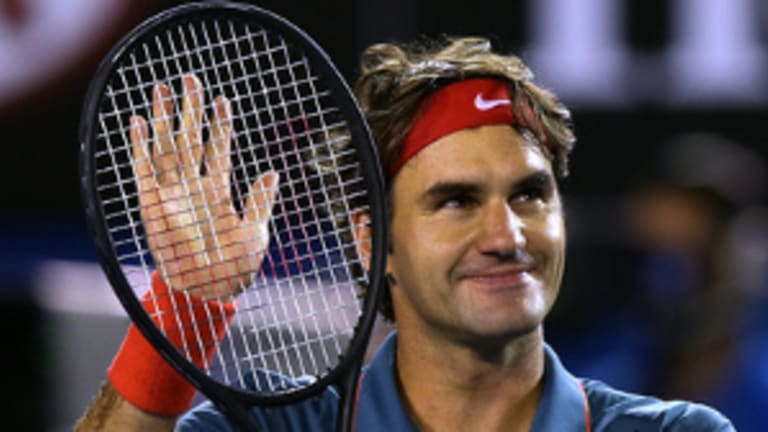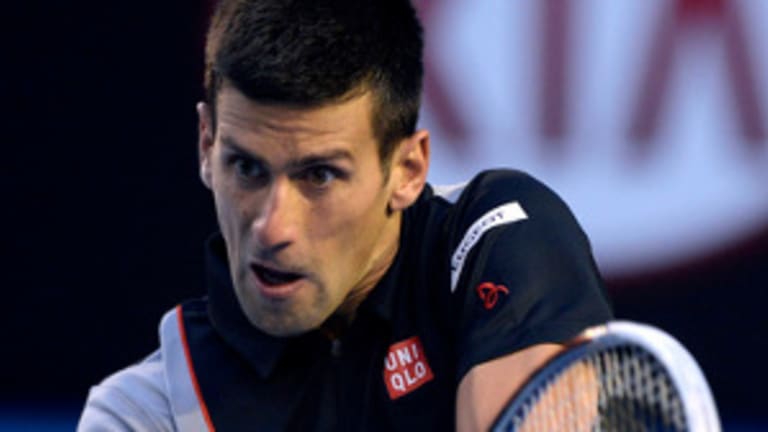There may be 60-some-odd tournaments in a typical ATP tennis calendar, but the reality is that the game is a lot like a high-quality television mini-series—think The Sopranos (which I never watched), or Hell on Wheels (which I did).
In tennis, the annual mini-series has roughly nine episodes. Some are better than others, characters come and go, sometimes disappearing or playing smaller roles for entire episodes at a time—a little like the way top players are written out of the script, sometimes for lengthy stretches, right after Grand Slam events.
The first episode of tennis’ mini-series ended with the Australian Open trophy presentation. Most of the plot twists in that one revolved around the fortunes of Rafael Nadal. Just when the familiar plot-line of Nadal’s rivalry with Roger Federer seemed to be going stale, a new character, Stanislas Wawrinka, was introduced. In a compelling teaser, Wawrinka knocked off Novak Djokovic on his way to a surprising final-round win over Nadal.
As in any good mini-series, some big questions were left hanging. We were left waiting for them to be answered while we sat through the second episode, a quirky one featuring the likes of Ernests Gulbis and Fabio Fognini. That’s kind of like the Sopranos, but without the mobsters.
The new, third episode, which will be played out on hard courts over the next month, begins this week in Dubai. In it we return to the plot-line developing for two staples of the show, Djokovic and Federer. As in any well-conceived plot, one of the most fundamental issues will be that of motivation. What are these guys doing in Dubai, and why are they doing it?
Take Federer. He’s a little like the smooth rich guy who keeps wanting to get richer. When is enough enough, you may wonder? What more does the guy want? What is it that keeps him going? Is there a wooden racquet somewhere in his past called “Rosebud”?
Then there’s Djokovic, whose impetus seems more apparent. First and probably foremost, he’s embarking on this episode in a tainted state for the first time in more than three years (the Serb won the Australian Open in each of the last three years). On top of that, he’s also needful of avenging himself upon Nadal, who blazed back from a long hiatus to rip the top ranking out of a seemingly complacent Djokovic’s hands last summer.
Federer, meanwhile, is now down to No. 8 in the rankings and he hasn’t won a title since Halle last July. It was the 32-year old star’s only tournament win in 2013, and it certainly helped his cause that Nadal withdrew from the tournament after winning the French Open.
Federer has had an outstanding history in Dubai, where he spends so much of his downtime that calling him Roger of Arabia doesn’t miss the mark by much. You might even look at Dubai as kind of a bellwether for him; he’s won the tournament five times, and so what if some of the guys he beat for titles were Jiri Novak, Feliciano Lopez, and Mikhail Youzhny?
Federer has a solid history in this third episode. He’s won a grand total of 11 titles at Dubai, Indian Wells, and Miami, the two March Masters events. Those five wins in Dubai can only help his confidence, but what it does—or doesn’t—do for his motivation is a slightly more complicated question.

